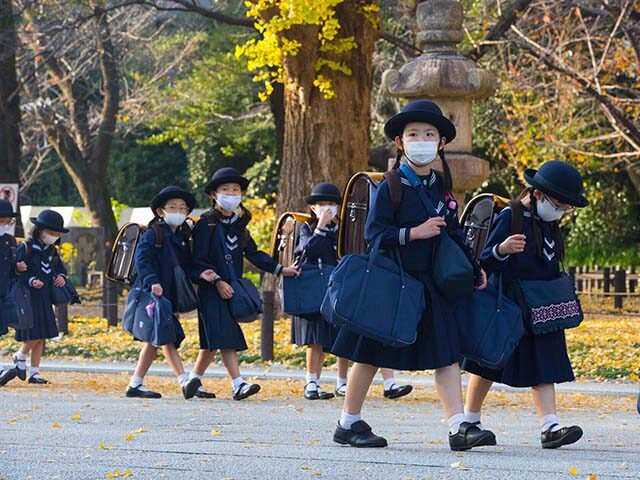Japan is struggling with an exceptionally bad outbreak of seasonal influenza among school children, prompting a number of schools across the country to suspend classes.
Health experts suggested the flu outbreak could have been influenced by the aftermath of the Wuhan coronavirus pandemic in several ways, including infection control policies relaxed after the heavy burden of coronavirus protocols, reduced flu vaccinations, and weakened immune systems.
According to Nikkei Asia on Saturday, Japan usually has a vigorous spring flu season, but this year has seen a much higher number of serious infections ¯ especially when compared to the flat flu years of the coronavirus pandemic:
Usually at this time of year, the influenza prevalence has subsided. There were zero cases in 2020 to 2022 during the COVID-19 pandemic. In the past decade, only in 2013 did the number exceed one (1.21). The number of cases increased from the previous week in 14 prefectures, with high figures in Miyazaki (7.07), Nagasaki (4.14) and Ehime (3.67). Across the country, 325 schools and other facilities decided to close or keep some students home, 4.5 times more than the two weeks earlier. This was the second consecutive week that the number exceeded 300, and the first such case since the week of March 20-26.
In mid-May, a mass outbreak of the flu occurred after a sports festival at a high school in the city of Miyazaki. “It is possible that the sports festival was the catalyst for the spread of the infection,” said the city official in charge of the response. At the festival, the students were competing closely with each other in events such as “15 people, 16 legs,” and cheering loudly.
The number of infected patients at the school has been gradually increasing since early May. A sports festival was held on May 12, and four days later about 490 people, including 15 faculty members, were confirmed to be infected. School officials decided to close the school for about a week. “We haven’t seen a mass outbreak like this in recent years,” said the city official.

A medical worker collects a sample for polymerase chain reaction tests for the coronavirus disease on May 10, 2020, during a simulation for drive-through at the Kashima soccer Stadium in Ibaraki-Prefecture, Japan. (Keizo Mori/UPI)
Some Japanese high schools reported flu infection rates as high as 25 percent, leading at least 30 schools to shut down for the week of May 22-28. Health experts were concerned that the flu wave does not appear to be fading on its own in June, as such outbreaks usually do.
“This is the first time we’ve had so many infections,” a private high school official told the Japan Times in late May.
“Immunity against the virus has declined because of the lack of influenza outbreaks and decreased vaccinations due to infection control measures during [the Wuhan coronavirus pandemic],” postulated Kurahara Yu of the National Hospital Organization’s Kinki-Chuo Chest Medical Center.
Kurahara also thought the flu might have benefited from the widespread abandonment of sanitary masks after coronavirus protocols were lifted. Ironically, the effectiveness of most civilian masks against coronavirus is debatable, but they are considered useful for keeping people who have the flu from spreading it to others via exhaled droplets.
Keio University visiting professor Sugaya Norio added that flu infections faded to nothing during the pandemic because people avoided communal activities like eating out, while the flu is back with a vengeance because those low-infection years weakened herd immunity.
“The elderly, young children and people with underlying conditions are at risk of becoming seriously ill,” Sugaya warned.

COMMENTS
Please let us know if you're having issues with commenting.